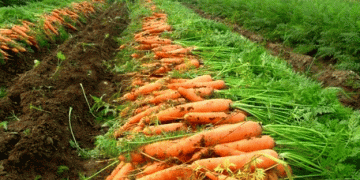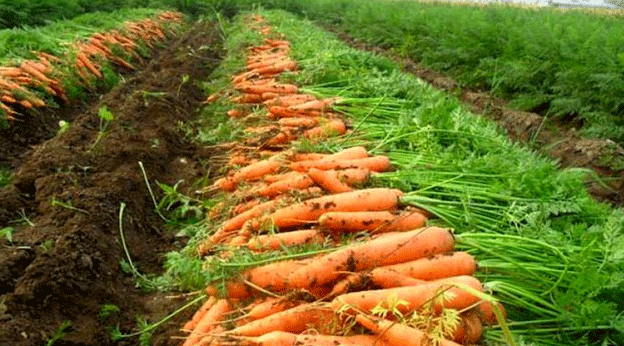Paraguay’s agricultural sector is on the cusp of a major achievement with the first-ever export of locally grown carrots to Argentina. This milestone, expected to be completed by October 15, 2024, is a result of ongoing collaboration between Paraguayan farmers and the National Service of Plant and Seed Quality and Health (SENAVE). The carrots will be shipped from the district of Tomás Romero Pereira, also known as María Auxiliadora, located in the southern region of Itapúa, where 91% of Paraguay’s national carrot production is concentrated.
Leticia Soria, Director of Quality and Safety at SENAVE, emphasized the significance of this export in a recent interview. She highlighted the joint efforts between local farmers and SENAVE in improving both the quality and quantity of carrot production. Through the introduction of new technologies and innovation in cultivation methods, Paraguayan carrot growers are now well-positioned to access international markets. “The carrot is the only crop that supplies the local market year-round, and now we are ready for our first export,” Soria said, underscoring the progress made in the sector.
The export is not only a major win for Paraguay but also demonstrates the region’s potential to become a more significant player in the international agricultural market. The export from Itapúa comes at a time when global demand for carrots is increasing, and neighboring Argentina provides a promising new market. While the exact volume of the initial shipment has not been disclosed, this development is setting high expectations among local farmers for future exports.
The Role of Climate and Technology
The success of Paraguay’s carrot production, particularly in the Itapúa region, can be attributed to favorable climatic conditions and the adoption of modern agricultural technologies. Soria remarked that the country’s climate allows for year-round production, which is crucial in maintaining consistent supply levels. These favorable conditions, combined with advanced farming techniques, enable Paraguayan farmers to grow high-quality carrots that are now ready for international distribution.
SENAVE’s work alongside producers has ensured that carrots meet stringent international standards for quality and safety. By focusing on innovation and using cutting-edge farming technologies, farmers in the region are now able to achieve yields and product quality that can compete on a global stage.
In addition to Itapúa, other regions like Caaguazú, San Pedro, and Paraguarí also contribute to the nation’s carrot production, albeit in smaller quantities. Overall, Paraguay produces approximately 11,612 tons of carrots annually, and with this new export initiative, those numbers are expected to grow.
Impact on Local Farmers and the Economy
The first shipment of carrots to Argentina is a promising opportunity for Paraguayan farmers to expand their market reach. Farmers in Tomás Romero Pereira, who have worked tirelessly to improve the quality and scale of their production, now have the chance to see their efforts pay off on the international stage. This export could pave the way for further growth in the sector, not only in carrots but also in other horticultural products.
Soria and other officials hope that this export is just the beginning, opening doors for Paraguay to establish itself as a reliable supplier of carrots in the international market. The economic benefits could be significant, especially for small-scale farmers in rural areas. Increased exports mean new revenue streams and the potential for job creation in agricultural communities across the country.
Paraguay’s first carrot export to Argentina marks a historic moment for the country’s agricultural sector. Through a combination of favorable climate conditions, technological innovation, and collaboration between farmers and government agencies, the country is making its mark in international markets. As Paraguay continues to improve the quality and scale of its carrot production, the potential for further growth in exports looks promising. The success of this initiative could lead to increased economic opportunities for farmers and help solidify Paraguay’s position as a competitive agricultural producer in the region.































